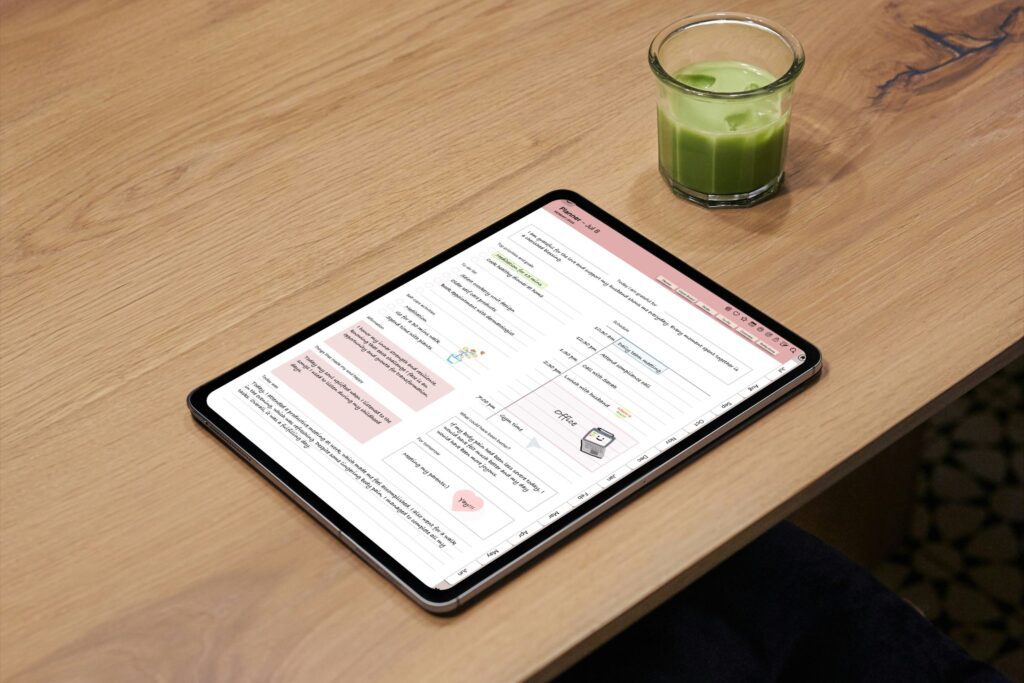When we were in high school, the internet had become popular, but social media was in its initial stage. Facebook was still new, and most of us in India were using Orkut. Kids today wouldn’t have even heard of it.
I can’t speak of how it was around you but in India, parents were very cautious about how their kids used the internet because they, too, were unfamiliar with it.
They’d heard stories of all the dangers lurking online, from scammers to inappropriate content, so they used to keep a close eye on what we were using it for.
One afternoon, I came home from school and immediately sensed something was off. The atmosphere was tense, and I could feel it as soon as I stepped through the door.
I found out that one of my friend’s mothers had come over while I was at school and told my parents that a group of us, including her child and several of our other friends, had been ‘chatting’ on the internet.
She said she would keep an eye on her kid so he doesn’t do it again, and asked my parents to keep a close eye on me.
As I said, my parents didn’t know much about the internet, and the little they had heard was not good. They believed the internet was full of trouble like scams, inappropriate content, you name it.
To them, it was something that should only be used for schoolwork and learning.
You would be surprised to know that all we were doing was talking on Orkut. Unlike today’s social media where all our messages are private, the messages on Orkut between friends appeared right on your profile for everyone to see.
We weren’t doing anything wrong, just chatting with friends.
But to my parents, the idea of “chatting” online sounded suspicious, and I ended up getting a real scolding from my parents for ‘misusing’ the internet.
They were upset and I got quite the thrashing because they believed the internet was only meant for studies, not socializing.
I hadn’t thought about this story in years, but recently I stumbled upon it in one of my old diaries or rather an old notebook where I used to scribble down random thoughts and notes.
My mother was going through some of my old schoolbooks and asked me if any of these were still useful. That’s when I came across that.
Flipping through those pages brought back memories, not just of the incident, but of the countless little moments I had forgotten about over the years.
It made me realize how easily we forget the small and everyday events of our lives. These moments might seem ordinary now, but in ten or twenty years, they could be interesting, funny, anecdotal, or even sentimental to look back on.

Not all of our lives are made up of exciting or extraordinary things and events, there are plenty of ordinary parts too that give our lives color and meaning.
But if you keep a journal, you’ll have a personal record of your life so far that might be fun and interesting to read 10 or 20 years down the line.
Apart from this, there have been so many studies about the benefits of journaling in different aspects of our lives. It helps with stress, keeps your thoughts organized, and encourages mindfulness in your daily life.
Both of us have started with this practice in recent months, and we can say from personal experience that it has helped us in so many ways.
Whether you’re a student, a working professional, or retired, journaling can be a great way to manage your thoughts and feelings.
It is one of the best tools you can use to improve your life, no matter which stage of life you’re in. But like everything else in this world, there are pros and cons to journaling as well that you should consider if you want to give it a try.
In this blog, we’ll explore both the benefits and potential downsides of journaling to help you decide if it’s worth incorporating into your routine.
So, let’s dive in and take a closer look at the pros and cons of journaling!
Table of Contents
What Is Done in Journaling?
When it comes to journaling, there isn’t one right way to do it. At its core, journaling is simply about writing about your thoughts, feelings, and experiences down on paper (or in a digital format) to make sense of them.
For some people, this means writing daily entries about their day like what they did, who they met, and how they felt.
Others might use their journal for more specific purposes like processing emotions during tough times, tracking progress toward personal goals, becoming a better version of themselves, or manifesting their dream lives.
One common form of journaling is reflective writing where you take time to look back on your day or a particular experience and think deeply about it.
This can help you understand how you’re feeling or what you’re going through, especially if you’re under stress or not sure about anything. It’s like having a conversation with yourself but on paper.
Some people prefer to use their journals for creative expression. Whether it’s doodling, writing poetry, or brainstorming ideas, a journal can be a great outlet for your imagination.
It’s a place where you can explore new ideas without the pressure of an audience.
Another popular use of journaling is goal setting and habit tracking. You can write down your goals, break them into smaller steps, and track your progress along the way.
It’s a practical way to stay motivated and organized while holding yourself accountable.
Ultimately, journaling is a deeply personal practice. It can be as structured or free-form as you want it to be.
Whether you’re writing to clear your mind, record memories, or simply express yourself, journaling gives you the space to reflect and grow in a way that works for you.
Is Journaling Part of Self-Care?
Journaling is a very important part of self-care because self-care is all about taking intentional steps and making conscious choices to take care of your mental, emotional, and physical well-being, and journaling fits naturally into that.
For many people, journaling acts as an emotional outlet. When life gets overwhelming or confusing, writing your feelings down on paper can help you process them more easily.
It’s a way to sort through what’s been weighing on your mind and make sense of things that might feel chaotic.
In that way, it’s much like having a conversation with a trusted friend, but the conversation happens between you and the page.
Journaling also helps you self-reflect, which is an important aspect of self-care.
Whether you’re reflecting on a rough day, a challenging situation, or even a positive experience, it helps you take a step back and think about what’s really going on inside.
It encourages mindfulness, which means you can be more present with your thoughts and feelings instead of letting them spiral out of control.
What Are the Benefits of Journaling?
Journaling has become a trusted tool for so many people, including us because it helps us bring more clarity, calm, and purpose into our lives.
The benefits of journaling are more than just writing words on paper, it’s a practice that helps you manage your thoughts and emotions in a healthy way.
Serves as a Mental and Emotional Release
One of the major benefits of journaling is that it serves as a mental and emotional release. So many of us carry our stress, anxieties, and frustrations with us throughout the day, sometimes without even realizing it.
Writing about those feelings can help us unburden our minds. It’s a space to “brain dump” all those swirling thoughts and emotions that can make them feel less overwhelming.
It can help us release negativity and avoid being consumed by bad feelings.
Increases Self-Awareness
Another significant benefit of journaling is that it helps us increase our self-awareness.
It gives us a chance to pause, reflect, and identify patterns in our behavior, thoughts, and feelings that we might otherwise overlook.
You get to question why you do what you do, which in turn creates a deeper understanding of yourself.
This kind of self-awareness is important for growing as a person because it opens the door to becoming a more mindful and mature version of yourself.
Increases Self-Confidence
When you journal regularly, you start noticing the progress you’ve made over time. And when you look back on the past entries and your journey so far, you get that sense of accomplishment.
You can see that even when things seemed tough, you survived and moved forward.
This realization strengthens your belief in your abilities and gives you a confidence boost that you carry into other areas of your life as well.
Helps in Setting and Achieving Goals
Setting and achieving goals is another area where journaling helps you. When you write down your goals in your journal, you’re making a commitment to yourself.
You can see and track your progress, make changes as and when required, and hold yourself accountable for anything that didn’t go well or could have been done better.
It constantly reminds you of the goals you’ve set for yourself and the steps you need to take to achieve them.
It becomes easier for you to be focused, motivated, and disciplined with these consistent check-in processes.
Provides a Creative Outlet
Like the great minds of history who used their journals for brainstorming ideas, you too can use your journal as a space to let your imagination roam free.
The simple act of writing without any pressure to be perfect often leads to surprising ideas and solutions that you may not have thought of otherwise.
It’s a powerful way to tap into your creative side, which often gets stifled in the busyness of everyday life.
Helps Manage Stress and Anxiety
The challenges of everyday life can feel all-consuming when they remain stuck in our minds. But by writing down what’s bothering you, you essentially distance yourself from those worries.
You can step back, process your emotions, and even start thinking about possible solutions.
Eventually, this will help reduce the intensity of the stress or anxiety you’re feeling and will make it easier to approach your problems with a calmer and clearer mindset.
How We Use Journaling to Stay Mindful and Organized
Both of us have been journaling for a while now and it has become a very important part of our daily lives.
It’s more than just another thing in the daily routine, it’s a practice that helps us stay mindful, grounded, and focused on what truly matters.
Journaling has helped us declutter our minds, reflect on our goals, and track our progress in ways we never imagined.
With all this in mind, we felt inspired to create something that combines the benefits of journaling with practical tools for everyday life.
That’s how our Mindful Living Digital Planner came to be. It’s not just a journal, it’s a planner, a health tracker, and a self-care tool designed to help you practice mindfulness, gratitude, affirmations, and more.
If you’re looking to start or deepen your journaling journey, our planner can be a gentle companion to guide you through it.
It’s designed with care, for people like us, who want to stay organized while nurturing their mental and emotional well-being.

What Are the Cons of Journaling?
Like I said initially, journaling also has a negative side if not done properly. Some people might struggle with it, or even find it counterproductive in certain situations.
Let’s look at some of the downsides of journaling
It Can Be Time-Consuming
One of the main issues people face with journaling is how much time it can take. In today’s busy world, finding the time to sit down and reflect can feel like a luxury.
Daily journaling requires commitment, and not everyone has the time to maintain a consistent practice. Some might start out strong but gradually lose motivation because they can’t fit it into their schedule.
When it becomes something that feels like a chore rather than a beneficial activity, it can actually add stress instead of helping reduce it.
Overthinking and Self-Criticism
Another downside to journaling is that it can sometimes make you overthink. When you’re writing about your feelings or experiences, you start analyzing every little detail.
Instead of processing emotions in a healthy way, some people may get stuck in their thoughts or overanalyze certain situations or emotions.
This can intensify negative feelings rather than relieve them. Similarly, some people might become too critical of themselves while journaling.
They focus too much on their mistakes or shortcomings, which can affect their self-esteem.
Reliving Negative Experiences
Journaling about difficult or painful moments can sometimes feel like reliving them all over again.
While the intention may be to work through emotions, writing about certain experiences might reopen old wounds.
For some, this process of digging deep into their emotions can make them feel worse, not better.
Instead of finding relief, they may feel emotionally drained, especially if they are constantly writing about the same problems without finding a solution or a sense of closure.
Lack of Privacy
One concern that comes with journaling is the lack of privacy. Writing down personal thoughts and feelings means there’s always the risk of someone finding and reading your journal.
This can be a problem especially if you’re using your journal as a place to vent about private matters.
The fear of someone finding your most personal thoughts can make you hesitant to be honest in your writing, which defeats the purpose of journaling altogether.
Journaling May Not Solve Problems
You should understand that while journaling is helpful, it isn’t a magical fix for every problem. Writing about an issue doesn’t always lead to a solution.
In some cases, people might write about their problems but still feel stuck, without any real sense of progress.
Journaling can help you organize your thoughts but it won’t necessarily change the circumstances or provide all the answers.
Some people might feel frustrated when their journaling practice doesn’t result in the breakthroughs they hoped for.
It Can Become a Negative Habit
For some, journaling can turn into a negative habit if it’s not approached with the right mindset. If you’re only using your journal to complain or focus on what’s going wrong in your life, it can create a cycle of negativity.
Instead of using it as a tool for growth, some might unknowingly reinforce bad feelings by repeatedly writing about them without taking any steps to change their situation.
This might lead to an unhealthy habit of focusing on the negatives which can keep them stuck in a loop of frustration or sadness.
How to Reap the Benefits of Journaling While Avoiding the Pitfalls
You might feel slightly overwhelmed after knowing these downsides of journaling, but the good news is that with the right approach, you can enjoy the benefits while sidestepping the potential drawbacks.
Here are some tips on how to avoid them.
Start Small and Be Consistent
One of the main reasons journaling can feel time-consuming is when people try to write long, detailed entries every single day. If you’re feeling overwhelmed, try starting small.
A few minutes a day or even just a few lines are enough to get your thoughts down. Consistency matters more than length.
By building a habit of journaling regularly, even for a short time, you can make it a part of your routine without feeling like it’s taking up too much of your day.
Focus on Solutions, Not Just Problems
To avoid getting stuck in negative thinking, try to shift your focus when writing. It’s okay to vent also but try to brainstorm solutions or reflect on how you can approach the situation differently.
After writing about a challenge, ask yourself questions like: “What can I learn from this?” or “What steps can I take to improve things?”
This way, your journal becomes a place for growth and problem-solving, rather than just a dumping ground for frustration.
Set Boundaries with Your Emotions
Writing about difficult emotions is a healthy way to process them, but you should also set boundaries. If you find yourself constantly dwelling on negative experiences, try balancing it out by writing positive things as well.
After writing about a tough day, write down a few things that went well or things you’re grateful for. This will create a balance and prevent you from getting trapped in a cycle of reliving negative experiences.
Prioritize Privacy
If you fear that someone else might read your private thoughts, take steps to ensure your journal stays private.
You can either use a password-protected digital journal, hide your physical journal in a secure place, or simply be mindful about where you leave it.
It will help you feel more at ease and you can write freely without the fear of someone else reading it.
Use Journaling as a Complement, Not a Cure-All
Journaling is a great tool for improving different aspects of your life but you should also understand that it won’t solve all your problems on its own.
Instead of expecting journaling to be the answer to everything, use it as one part of a bigger toolkit.
Pair it with other practices like meditation, talking to a friend, or seeking professional advice when needed.
Be Mindful of Your Writing Habit
Be a little mindful of how you use your journal so it doesn’t become a negative habit. If you notice that you’re only writing about what’s going wrong, try to balance your entries by focusing on the good things in your life too.
Incorporate gratitude in your journaling practice where you write about things you’ve accomplished or are grateful for. This will help you shift your perspective to a more positive one.
Take Breaks When Needed
Lastly, don’t feel pressured to journal every single day. If you’re finding that journaling is starting to feel like a chore, it’s okay to take breaks.
Skipping a day or two can give you some distance and allow you to come back to it with a fresh perspective.
Please understand that journaling should be something that adds value to your life, not something that adds stress.
Wrapping Up – What Are the Advantages and Disadvantages of Writing a Journal?
Just like any other tool out there, journaling also has its positives and negatives.
It’s not a magic solution, but rather a personal practice that can bring about meaningful changes in your life if you approach it with the right mindset.
The key is to be mindful of how you use it and what you expect from it.
It can be an incredible way to reflect, grow, and understand yourself better, but you should acknowledge its potential challenges as well.
If you’re aware of these common pitfalls, you can adjust your journaling routine to suit your needs. With a little patience and flexibility, you’ll see that the benefits far outweigh the drawbacks.
If you’re new to journaling, don’t worry if it doesn’t feel natural at first. Like any habit, it takes time to find your rhythm.
Be kind to yourself and remember that it’s okay to start small. Over time, you’ll start seeing the positive impact it has on different areas of your life.
In the end, journaling is a personal journey. There’s no right or wrong way to do it, and the most important thing is that it should work for you.
So, take it at your own pace, stay open to the process, and enjoy the self-discovery that comes along the way. Namaste!
Related Blogs on Journaling
- What Is Journaling and What Are Its Benefits?
- What Are The Different Types of Journaling
- 5 Simple Steps to Start Journaling for Mental Health
- How and Why You Should Start a Gratitude Journal
- How to Journal for Personal Growth and Self-improvement
- What Is a Manifestation Journal and How to Journal for Manifestation
- How to Start a Health and Wellness Journal
- How Can Journaling Boost Your Productivity
- How to Journal for Overthinking
- What Is a Morning Journal and How to Journal in the Morning?
- Journaling vs. Keeping a Diary: What’s the Difference?
FAQs – The Pros and Cons of Journaling
Is Journaling Better Than Typing?
Journaling by hand can feel more personal and engaging, allowing you to slow down and connect deeper with your thoughts.
However, typing might be more convenient and faster, especially if you’re on the go or prefer digital records. Ultimately, it’s about what feels right for you.
As we mentioned in the blog, journaling is a personal journey, and there’s no wrong way to do it, whether you choose pen and paper or a keyboard.
Is Journaling a Waste of Time?
Journaling is far from a waste of time, especially if you’re intentional about it. It offers a space to reflect, track personal growth, and manage emotions.
As we highlighted in the blog, the key to reaping the benefits of journaling is to be mindful of your practice. Even dedicating a few minutes each day can help you feel more centered and in control.
Why You Shouldn’t Keep a Journal
Some people might avoid journaling because they feel it forces them to confront uncomfortable emotions or they fear it might become a negative habit.
In the blog, we discussed how journaling, when done without mindfulness, could lead to dwelling on negative thoughts.
However, by setting healthy boundaries and focusing on growth, journaling can be a positive tool rather than something to avoid.
Is Journaling Good or Bad for You?
Journaling can be both good and bad, it depends on how you approach it. Journaling has so many benefits like reducing stress, improving self-awareness, and helping with goal-setting.
But if it leads to overthinking or negative thought loops, it can become harmful. The key is to be mindful and balanced in your practice.
Is There a Downside to Journaling?
Yes, there are some downsides to journaling. These include becoming overly focused on negative thoughts, feeling pressure to journal daily, or even using it as an excuse to avoid taking action.
However, by recognizing these pitfalls, you can still make journaling a beneficial habit by adjusting your approach.
Why Do I Avoid Journaling?
Many people avoid journaling because they feel vulnerable writing down their thoughts or fear that their writing isn’t “good enough.”
In the blog, we touched on the importance of letting go of perfection and simply allowing journaling to be a tool for self-reflection. The key is to start small and remember that journaling is for you, not for anyone else.







Leave a Reply